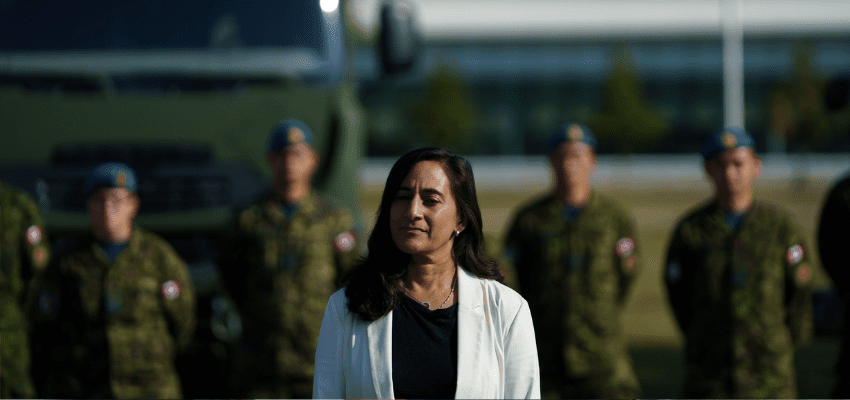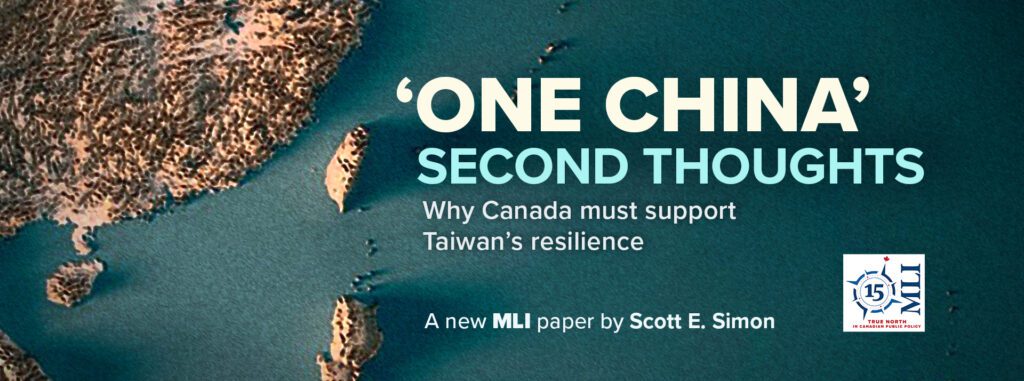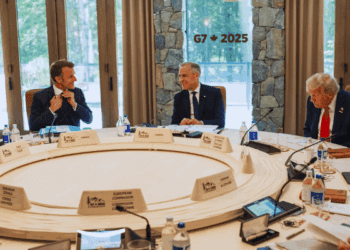This article originally appeared in the National Post.
By Alan Kessel, May 20, 2025
Practically the first words out of Anita Anand’s mouth after she became Canada’s new foreign affairs minister were not about reaffirming alliances, protecting Canadian citizens abroad or defending democratic norms. Instead, she chose to cast immediate blame on Israel for the devastating conditions in Gaza — without acknowledging, let alone condemning, Hamas’s horrific October 7 massacre, which precipitated this war.
This was no small omission. On that day, Hamas terrorists infiltrated Israel, brutally murdering 1,200 people — including women, children, the elderly and at least eight Canadian citizens. It was the deadliest single day for Jews since the Holocaust. Any serious foreign minister, especially one stepping into the role during an active conflict, should have led with that fact.
Yet Anand’s statement focused almost exclusively on Israel’s conduct. She used the language of “aggression,” suggesting a one-sided moral landscape, and offered no contextual recognition that Hamas is a terrorist organization that has embedded itself within civilian infrastructure while firing thousands of rockets into Israeli cities. That is not just a diplomatic fumble, it’s a profound strategic misstep.
Historically, Canada’s foreign policy has rested on the principles of sovereignty, accountability and collective security. We joined the global coalition in Afghanistan after 9/11, not only out of solidarity with the United States but because 24 Canadians were murdered in the attack. We understood that terror organizations like al-Qaida and its Taliban hosts represented a global threat and that inaction or equivocation was not an option.
And yet here we are, just over two decades later, with a Canadian foreign minister choosing to emphasize Israeli “aggression” while downplaying or ignoring the role of Hamas — a group every bit as ideologically extreme and operationally ruthless as al-Qaida. The contradiction is glaring. When Canada’s own citizens were murdered by terrorists on 9/11, we mobilized militarily and diplomatically. When Canadians are murdered by Hamas in Israel, the new foreign minister offers language that reads like equivocation, if not appeasement.
This is not just morally incoherent, it’s strategically dangerous. It signals to allies that Canada cannot be counted on in times of crisis. It suggests that our foreign policy may be governed more by trending narratives than by hard realities. And it invites adversaries to believe that Canada’s leadership can be pressured or swayed by asymmetric warfare and media optics.
So the question must be asked: was this a rookie misstep, or the first clear signal of a broader shift under the Carney government? If this was Anand speaking out of turn — before receiving a full briefing or grasping the nuance of Canada’s historical posture in the Middle East — then she has done herself and the country a disservice. The Foreign Ministry is not a place for ideological improvisation or headline-chasing rhetoric. It requires precision, balance and, above all, a grounding in facts.
But if this was a policy signal — if Anand is articulating the new voice of Canadian foreign policy under Prime Minister Mark Carney — then Canadians deserve clarity. Is this government adopting a more strident, critical posture toward Israel while minimizing or ignoring the provocations and atrocities of Hamas? Is Canada moving away from its longstanding commitment to Israel’s right to self-defence? Is this the end of the careful, principled diplomacy that has marked Canada’s voice on the world stage for decades?
Carney has earned a reputation as a thoughtful, conscientious global actor who’s pragmatic, informed and deliberate. If Anand’s comments reflect his government’s intent, they mark a sharp, dissonant turn. And if they do not, then it is incumbent upon Carney to correct the record and reinforce a coherent message. Silence, in this case, implies endorsement.
Foreign policy begins with credibility, and credibility begins with facts and with moral clarity. If Minister Anand wants to lead Canada’s diplomacy, she must first recognize what happened on October 7 — not only because Canadians were among the murdered, but because truth is the foundation of peace. If she and her government chooses to forget this lesson, they risk not only moral confusion, but strategic irrelevance. Canada cannot afford either.
Alan Kessel is a former legal adviser to the Government of Canada and deputy high commissioner of Canada to the United Kingdom. He is also a senior fellow at the Macdonald Laurier Institute.







